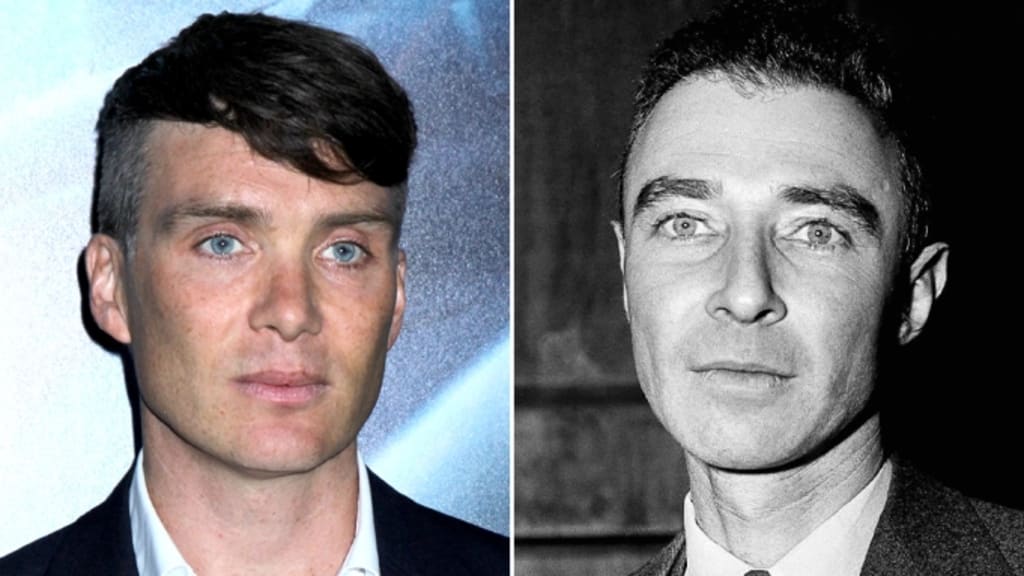J. Robert Oppenheimer: The Enigmatic Physicist and Architect of the Atomic Age
Unraveling the Complex Legacy of a Brilliant Mind and Moral Dilemmas of Science

J. Robert Oppenheimer was an exceptional physicist and one of the key figures in the development of the atomic bomb during World War II. Born on April 22, 1904, in New York City, Oppenheimer displayed a remarkable intellect from a young age. He attended Harvard University, where he excelled in his studies, earning a summa cum laude degree in chemistry and physics in 1925.
He went on to study theoretical physics at the University of Cambridge, where he worked under renowned physicist J.J. Thomson. Oppenheimer completed his Ph.D. in 1927 and returned to the United States to begin his academic career at the University of California, Berkeley.
Over the next few years, Oppenheimer made significant contributions to theoretical physics, particularly in quantum mechanics and quantum field theory. His work on electron-positron pairs laid the groundwork for future research in particle physics.
With the outbreak of World War II, Oppenheimer was called upon to contribute his expertise to the top-secret Manhattan Project, which aimed to develop an atomic bomb. He was appointed as the scientific director of the Los Alamos Laboratory, the primary research facility for the project.
Despite the enormous pressure and challenges, Oppenheimer led the scientific team at Los Alamos with exceptional skill and dedication. The successful test of the first atomic bomb in the New Mexico desert on July 16, 1945, marked a turning point in human history.
However, as the realization of the devastating power of atomic weapons sank in, Oppenheimer expressed deep concerns about the future of humanity and the potential for nuclear proliferation. He became an advocate for international control of atomic energy to prevent the catastrophic consequences of a nuclear arms race.
Unfortunately, Oppenheimer's political views and associations came under scrutiny during the post-war era. His past connections with left-leaning political groups led to allegations of communist sympathies, and he faced a security clearance hearing in 1954. Despite his significant contributions to the country during the war, his security clearance was revoked, which effectively ended his direct involvement in government scientific work.
After leaving Los Alamos, Oppenheimer continued his academic career, teaching at various institutions, including the Institute for Advanced Study in Princeton. He remained an influential figure in theoretical physics and served on numerous government advisory committees.
J. Robert Oppenheimer's legacy is a complex one, filled with both scientific achievements and political controversies. Regardless, his contributions to physics and his pivotal role in the development of atomic weapons have left an indelible mark on history. He passed away on February 18, 1967, leaving behind a profound impact on the scientific community and the world at large.
Throughout his career, Oppenheimer made significant contributions to various areas of theoretical physics. He was particularly interested in quantum mechanics, astrophysics, and the behavior of matter at extremely high temperatures and pressures. His research in these fields earned him numerous accolades and awards, solidifying his reputation as one of the leading physicists of his time.
Oppenheimer's leadership during the Manhattan Project was crucial to its success. His ability to bring together scientists from diverse backgrounds and disciplines and foster a collaborative environment was instrumental in the development of the atomic bomb. His intelligence, organizational skills, and hands-on approach earned him the respect and admiration of his colleagues.
After the war, Oppenheimer became an advocate for international cooperation in scientific research and the peaceful use of atomic energy. He played a key role in the establishment of the influential Bulletin of the Atomic Scientists, an independent publication that aimed to educate the public about the dangers of nuclear weapons and the importance of arms control.
Despite his commitment to scientific progress and international cooperation, Oppenheimer faced intense scrutiny during the McCarthy era, a time of heightened anti-communist sentiment in the United States. He had associations with leftist intellectuals and political groups in the 1930s, which came under investigation by government authorities.
In 1954, during the height of the Second Red Scare, Oppenheimer's security clearance was revoked by the Atomic Energy Commission after a controversial hearing. The decision was based on allegations of his communist sympathies and lack of trustworthiness. This event marked a low point in Oppenheimer's life and career and caused considerable distress to him and his family.
However, despite the setback, Oppenheimer continued to contribute to science and academia. He returned to teaching and research, becoming the Director of the Institute for Advanced Study in Princeton in 1947, a position he held until 1966.
In the years following his death in 1967, the assessment of Oppenheimer's legacy began to change. Many recognized his genuine patriotism and dedication to the welfare of his country. Over time, he became seen as a symbol of the complex moral choices that scientists face when their research can be used for both beneficial and harmful purposes.
J. Robert Oppenheimer's life and career remain a subject of fascination and discussion among historians, scientists, and policymakers. He is remembered not only for his significant contributions to physics and the development of atomic weapons but also for the ethical questions his work raised about the responsible use of scientific knowledge.
interesting facts about J. Robert Oppenheimer
Early Brilliance:
Oppenheimer showed his exceptional intellect from a young age. He began reading books in multiple languages and delving into advanced science topics at an early age, setting the stage for his future career as a physicist.
Polyglot and Renaissance Man:
Oppenheimer had a talent for languages and was fluent in several, including French, German, and Sanskrit. He was also well-versed in literature, philosophy, and art, earning him the reputation of a true Renaissance man.
The Oppenheimer Ranch:
The Oppenheimer family owned a ranch in New Mexico called Perro Caliente, which translates to "Hot Dog" in Spanish. It was a place where Oppenheimer often retreated to relax and reflect.
Significant Advisor to Government:
Even before his work on the Manhattan Project, Oppenheimer served as an important scientific advisor to the U.S. government. During World War II, he was involved in the development of radar technology and other defense-related projects.
Affection for Poetry:
Oppenheimer had a deep appreciation for poetry and often quoted literary works, including verses from the Bhagavad Gita, a sacred Hindu scripture, which he famously recited after witnessing the first successful test of the atomic bomb.
Love for the American Southwest:
Oppenheimer developed a strong attachment to the American Southwest during his time working on the Manhattan Project at Los Alamos. He found solace in the region's natural beauty and landscapes.
Namesake of the "Oppenheimer Process":
Oppenheimer's contributions to astrophysics led to the concept of the "Oppenheimer Process," a series of nuclear fusion reactions in stars that synthesize elements.
Controversial Security Clearance Hearing:
His security clearance was revoked in 1954 due to allegations of communist sympathies, which deeply affected his career and reputation. Despite this setback, he continued his academic pursuits.
Honored Posthumously:
In 1963, President Lyndon B. Johnson awarded Oppenheimer the Enrico Fermi Award for his exceptional contributions to science, recognizing his significant role in the development of the atomic bomb.
Legacy of Scientific Impact:
J. Robert Oppenheimer's contributions to theoretical physics and leadership in the Manhattan Project have left a lasting impact on the field of science and the course of history. He is often remembered as one of the most influential physicists of the 20th century.
These fascinating facts provide a glimpse into the life of J. Robert Oppenheimer, a brilliant scientist whose work and character continue to be studied and remembered to this day.
About the Creator
Go With Trend
"Express, Connect, Impact - Welcome to "Go With Trend"!
Discover the magic of Letters on our vibrant platform. 🎙️ Share stories, sing your heart out, and connect with a global audience. 🌍 Unleash your creativity today! ✨ #"Go With Trend"






Comments
There are no comments for this story
Be the first to respond and start the conversation.